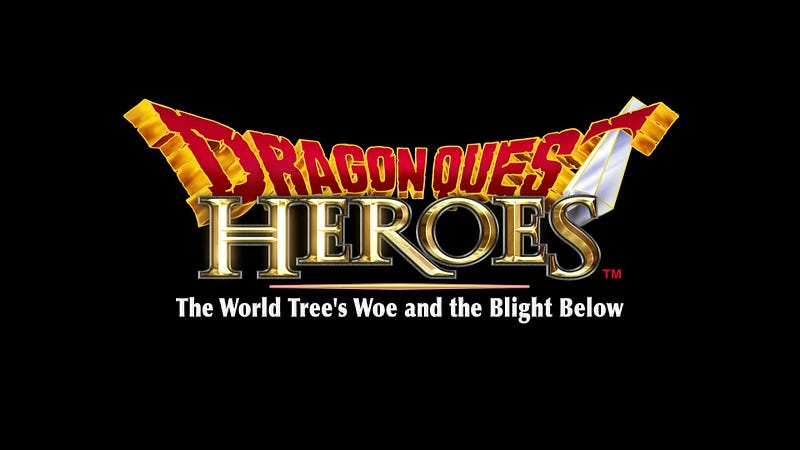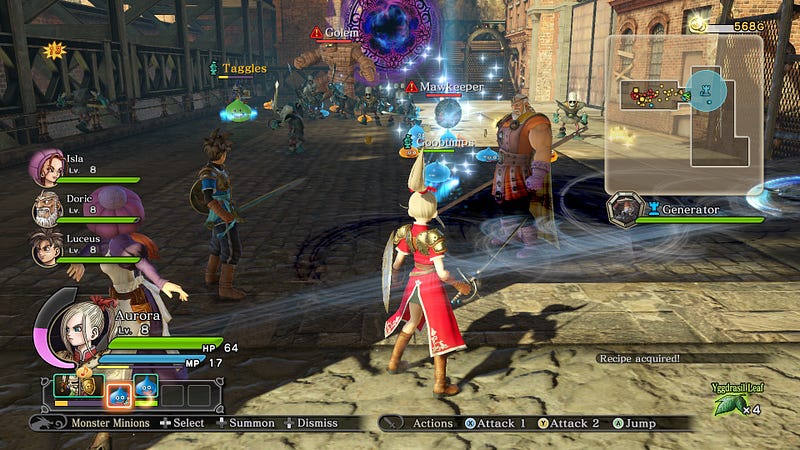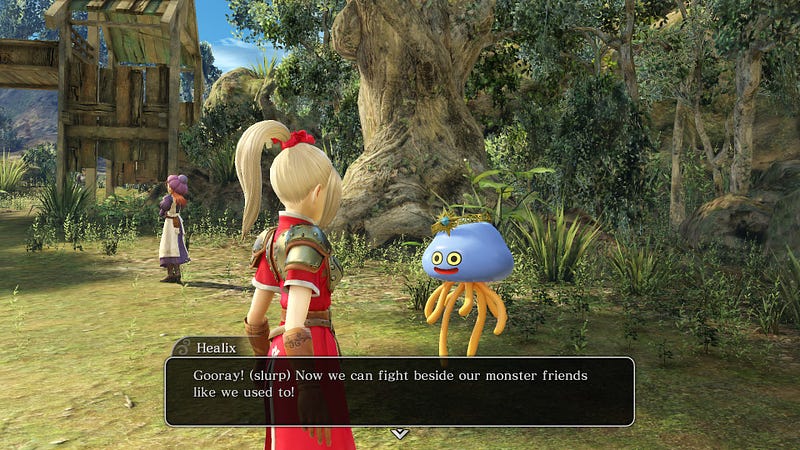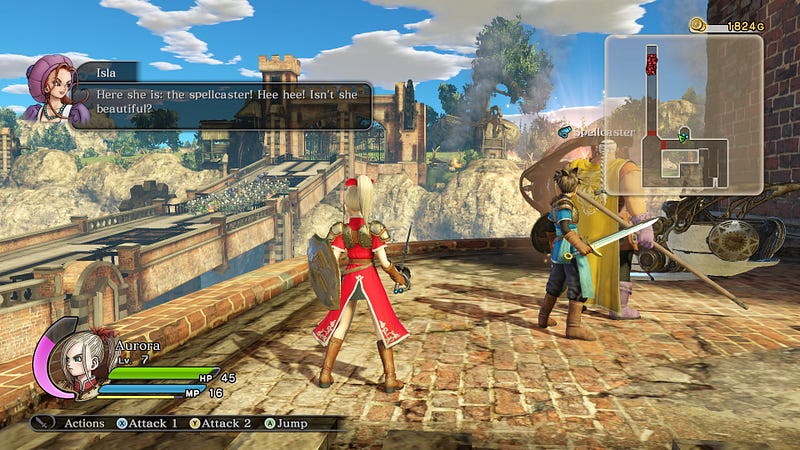My Most Anticipated Switch Title: The Mystery of Its Absence
Written on
The Evolution of the Nintendo Switch
Five years ago, the Nintendo Switch debuted to massive acclaim, revolutionizing the gaming landscape by merging home and portable play into a single device. This hybrid design led to remarkable sales figures, establishing it as Nintendo's most beloved and successful console to date.
The launch was bolstered by an impressive lineup, most notably the breathtaking world design and open-ended gameplay of The Legend of Zelda: Breath of the Wild. This game dominated discussions around the launch, earning its reputation as a timeless classic. Although available on the Wii U, the Switch quickly became recognized as the premier platform for this title.
However, despite my appreciation for Breath of the Wild, it wasn’t the Switch launch title that I was most eager to play. That distinction belonged to Dragon Quest Heroes I & II. As a devoted fan of the Dynasty Warriors series—one of my all-time favorites alongside icons like Mario—I was thrilled to learn that two of its standout entries would be available on day one, complete with additional content. I was ready to purchase the console immediately.

The Disappointment of Availability
Unfortunately, things didn’t unfold as I had hoped. The console was difficult to find during its initial months, though not as challenging as the current PS5 situation, and I’m still waiting for the game’s release. While Dragon Quest Heroes I was somewhat dated by the time the Switch launched, II had recently been released on both PS4 and PC. This nearly open-world game offered exhilarating action RPG combat, showcasing Omega Force’s best effort at a large play environment. In contrast to the sprawling yet empty world of Dynasty Warriors 9, Dragon Quest Heroes II excelled with its engaging maps and action sequences. I was excited to see how it would perform on the Switch against its more powerful rivals.
The two-game bundle launched successfully alongside the console in Japan, where players could even download a free demo. Then, without any warning, it vanished from the US and other regions. I held onto hope for a concrete release date, but that information never materialized. I eventually managed to obtain a Switch in late 2017, around the time Fire Emblem Warriors was released, but still, no sign of Dragon Quest Heroes. Numerous US retailers listed the game but continuously delayed its release before it eventually seemed to be forgotten altogether.

A Vanishing Act
After a year or two of silence, the game disappeared from retailer databases entirely. Now, five years later, it feels as though it never existed at all. Game cancellations happen frequently, often due to development issues or funding problems. However, this title was nearly complete on other platforms and had launched with little fanfare in Japan. It comes from a major publisher still invested in both the Switch and the Dragon Quest franchise, making its disappearance all the more puzzling.
Leading up to the Switch’s global launch, Square Enix teased a worldwide release of the game. Footage of the bundle appeared in an official Nintendo promotional reel, covered by IGN, and Eurogamer’s Digital Foundry even tested the Japanese demo, suggesting an inevitable worldwide launch. A quick search reveals numerous news articles and forum posts expressing hope for an official release or updates from the publisher.
Yet, nothing materialized. The longer this goes on, the stranger it feels. Dragon Quest remains an immensely popular franchise, with multiple other titles available on the Switch, and there are several other entries from the Warriors series on the platform as well. The latest installment was released just last month.

Possible Explanations
Some might argue that the game’s performance wasn’t flawless in those Digital Foundry videos, leading the publisher to worry about its potential reception at launch. However, the performance issues observed were relatively minor for a quickly produced launch title. The same development team has since released numerous other Switch games, showcasing varying levels of polish. Omega Force’s other titles on the Switch include DW8 Definitive Edition and Hyrule Warriors DE, both running smoothly at 60 frames per second, while Dynasty Warriors 9 Empires struggles to maintain 30 FPS. Thus, Dragon Quest Heroes would still hold up well against these standards, even with its technical hiccups.
Another theory suggests that localization costs could have been prohibitive. I might buy this argument, but Square Enix had already localized the other versions of both games. Since both titles had already been released on various platforms worldwide, the translation and adaptation work was already completed. Integrating those files into the Switch version would be a straightforward process, as the Dynasty Warriors engine allows for easy manipulation of localization packages.
A final theory posits that perhaps the publisher was hesitant to invest in a physical cart release due to production costs. This is a reasonable assumption, considering that Switch cartridges are more expensive to produce than discs. Consequently, many game compilations on the system often include only one title in physical format, requiring additional downloads for the rest. At launch, the demand for Switch cartridges was exceptionally high.
Nonetheless, Square Enix could have considered a digital-only release. Many Switch titles have adopted this approach, and I believe Dragon Quest Heroes would have been an ideal candidate for such treatment. With the game essentially ready for launch, it would only require a fraction of the budget compared to a full cart release.

The Frustration of Accessibility
Thanks to the Switch’s region-free capability, I could purchase a Japanese version to play; however, my understanding of the language is far from sufficient for an enjoyable experience. Physical copies are now quite expensive in the secondhand and import markets, and while accessing the Japanese eShop on a US Switch is possible, the setup process is cumbersome enough that I’ve never created an account. This is hardly a reasonable expectation for a broader audience.
Dragon Quest Heroes I & II would have been the perfect addition as a "second game" in the Switch’s launch lineup. These titles are excellent for players looking for action RPGs after they’ve spent time with Breath of the Wild. They stand the test of time, showcasing the exhilarating hack-and-slash action that has defined the Warriors series for over two decades, and they deserve a wider audience. The Dragon Quest brand also contributed its stunning art, music, and gameplay mechanics, keeping the experience fresh.
It’s disheartening that a vast number of players will likely never experience the Switch versions of these games, and equally frustrating that Square Enix has left this opportunity for profit unclaimed. With over 100 million Switch consoles in circulation, it wouldn’t take many purchases to make a worldwide release a lucrative endeavor.
As a final note of exasperation, this isn’t the only title from Omega Force that has inexplicably skipped a US Switch release. Warriors Orochi 3 Ultimate, Dynasty Warriors 8 Empires, and Samurai Warriors 4 all received lavish re-releases in Japan to celebrate various anniversaries, yet none made it to the US, despite being fully localized in earlier versions on other platforms. This DQ Heroes mystery repeats itself.
I had hoped that the rise of a global gaming market driven by digital distribution would minimize the frequency of games missing worldwide releases. It’s frustrating when established franchises fall through the cracks like this, especially when it seems that just a few thousand purchases would cover the costs of certifying and launching this finished game on the eShop.